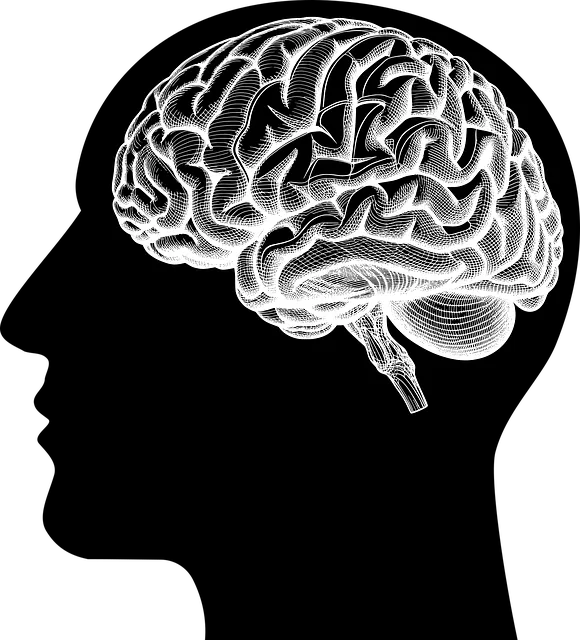Golden Kaiser Permanente's mental health providers employ a comprehensive risk assessment framework to safeguard patient well-being. This involves deep psychological profiling, considering history, current state, triggers, and personal/family context. They integrate evidence-based strategies from Mental Health Education Programs for tailored interventions, focusing on coping skills, stress management, and emotional well-being. The framework guides early detection through robust communication, regularly updated resources like the Mental Wellness Podcast Series, and trauma-informed care practices, ensuring high-quality, proactive mental health management.
Mental health professionals face unique risks, making comprehensive risk assessment vital for patient safety. This article guides you through essential aspects of risk management tailored for mental health care practitioners. We explore the Golden Kaiser Permanente Framework, a proven approach for providers to proactively identify and mitigate risks. By understanding key components of a thorough risk assessment and implementing strategies for enhanced patient safety, mental health professionals can deliver high-quality, secure services in today’s complex healthcare landscape.
- Understanding Risk Assessment in Mental Health Care
- The Golden Kaiser Permanente Framework for Providers
- Key Components of a Comprehensive Risk Assessment
- Strategies for Mitigating Risks and Enhancing Patient Safety
Understanding Risk Assessment in Mental Health Care

Mental health professionals are entrusted with the delicate task of helping individuals navigate complex emotional and psychological challenges. As such, risk assessment is a cornerstone of their practice, crucial for ensuring patient safety and effective care. This process involves meticulously evaluating various factors that could impact a client’s well-being, including their history, current circumstances, and potential triggers. By implementing comprehensive risk assessment techniques, mental health providers at Kaiser Permanente, such as those affiliated with the Golden network, can identify and mitigate risks associated with conditions like depression, anxiety, and even suicidal ideation.
Effective risk assessment goes beyond simply identifying dangers; it’s about designing tailored interventions based on individual needs. Incorporating elements from Mental Health Education Programs, these assessments may include strategies for self-esteem improvement and stress reduction methods, empowering clients to manage their mental health proactively. Through such holistic approaches, Kaiser Permanente’s mental health professionals not only treat symptoms but also equip individuals with the tools to maintain resilience and overall well-being.
The Golden Kaiser Permanente Framework for Providers

The Golden Kaiser Permanente Framework is a valuable resource for mental health professionals seeking to enhance their practice and ensure patient safety. This framework provides a structured approach to risk assessment, focusing on key areas such as coping skills development, stress management, and emotional well-being promotion techniques. By implementing this comprehensive model, healthcare providers can proactively identify and mitigate potential risks within their clinical practice.
It offers a systematic way to evaluate and address individual patient needs, ensuring that mental health professionals are equipped with the necessary tools to support clients effectively. The framework’s emphasis on evidence-based practices and continuous improvement contributes to the overall goal of delivering high-quality care while minimizing risks associated with mental health treatment.
Key Components of a Comprehensive Risk Assessment

A comprehensive risk assessment for mental health professionals involves several crucial components. First and foremost, it must encompass a thorough understanding of the client’s psychological profile, including their history, current mental state, and potential triggers. This includes evaluating symptoms of mental illness, past traumas, substance abuse, and any relevant personal or family history. At Golden Kaiser Permanente, mental health providers employ this holistic approach to ensure they possess a complete picture of each patient’s unique circumstances.
Additionally, risk assessments should consider the professional’s capabilities and limitations. This involves assessing their training, experience, and proficiency in evidence-based practices, such as Mindfulness Meditation and Self-Esteem Improvement techniques offered through Mental Wellness Coaching Programs Development. By integrating these elements, Golden Kaiser Permanente mental health providers can deliver tailored, effective care while mitigating potential risks associated with both the client’s mental wellness and the practitioner’s skill set.
Strategies for Mitigating Risks and Enhancing Patient Safety

Golden Kaiser Permanente mental health providers are at the forefront of patient care, and their well-being is paramount to effective service delivery. To mitigate risks and enhance patient safety, these professionals can employ several strategic approaches. Firstly, establishing robust communication strategies is key. Open lines of dialogue with patients allow for early detection of any deteriorating mental health states, enabling prompt interventions. Regularly updating the Mental Wellness Podcast Series Production can also serve as an educational resource for both staff and clients, fostering a culture of awareness and proactive risk management.
Additionally, integrating trauma-informed care practices ensures that providers are equipped to handle complex cases with empathy and understanding. By adopting these strategies, mental health professionals can create a safe and supportive environment, ultimately reducing potential risks and improving patient outcomes. This holistic approach aligns with the mission of Kaiser Permanente to deliver high-quality, accessible healthcare services, fostering Mental Wellness among its diverse population.
Mental health professionals play a vital role in fostering patient well-being, but they are not immune to risks. Implementing a comprehensive risk assessment strategy is essential to ensure their safety and enhance patient outcomes. The Golden Kaiser Permanente Framework provides a robust toolkit for evaluating potential hazards, with key components including a thorough patient history, environmental factors, and personal resilience. By adopting this framework and employing strategies like regular supervision, self-care practices, and evidence-based interventions, mental health providers can mitigate risks effectively. Embracing these measures not only protects professionals but also allows them to deliver high-quality care, ultimately revolutionizing the mental health landscape for the better.






